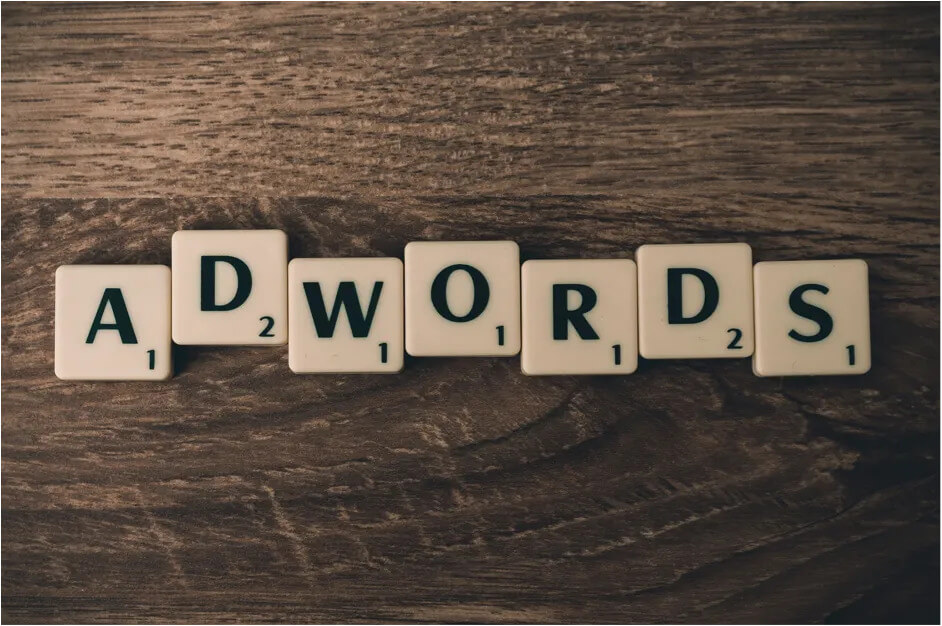In the vast expanse of online marketing, there are various approaches you can take. Some focus on a fixed period of time which you invest into your online advertising, such as SEO, others require you to pay a fee for direct advertisement. AdWords are part of one paid advertisement approach; this method can be highly effective if used correctly, but can also rack up a high cost in no time at all. So here is the breakdown:
AdWords
AdWords are one way in which the Pay Per Click system operates. You insert various key terms for your advert which you are willing to pay a certain amount for (bid), and then depending on what your competitors have entered, your result will either show high up the search result list, or not so much. Choosing the correct keywords is vital. There are two main ways to deploy your paid-for advertising scheme:
Pay Per Click
PPC (Pay Per Click) is a method of advertising where you pay a certain price every time a user clicks on your advert. This is probably the most common type of advertising in Google’s AdWords scheme.
Cost Per Thousand Impressions
CPM (Cost Per Thousand Impressions) is your alternative method to PPC. Instead of paying for how many times someone clicks on your advert, you pay based on user viewings only. This can be far more effective, depending on where your advert is being hosted.
SEO
Search Engine Optimisation, assuming we’re talking about white hat techniques (for more on this see here), is essentially about streamlining and maximising your webpage for a search engines ‘crawlers’. This is usually free, but can require a fair amount of invested time. Unlike Pay Per Click methods of online advertisement, SEO is rather slow.
Now that you get the basics of what these advertising methods are, let’s discuss some of the pros and cons of using them.
Why pay for advertisement when SEO is free?
This is a very fair question.
An effective SEO technique may well be more than enough for your advertising needs. It will bolster the exposure of your webpage in the organic (as opposed to paid for) search result rankings, without any other investment. For some, this may result in an effective advertising strategy alone.
However, using SEO alone is not advisable. For example, a recent study found that 40%[i] of web users in a survey were unaware that Google AdWords were adverts. They either didn’t notice those tiny yellow ‘ad’ boxes, or didn’t understand what they were. This means that potentially almost half your audience will be clicking on adverts rather than looking at the organic (weighted, in part, by effective SEO techniques) results. Therefore, utilising just one technique may leave you at a severe disadvantage.
Another important angle to consider is the timeframe. SEO is a more long-term technique that will continue to yield results over time. You invest in it properly, and it will keep on giving for years. Comparatively, AdWords for most, is a more seasonal or campaign based advertisement technique — unless you have an enormous budget, AdWords will run you dry. AdWords will of course give instant results, as once you upload your advert and pay, Google will do all the work for you. Therefore, the most effective use of the two techniques would be to use both.
Another aspect to your online marketing strategy to consider is where. You know the phrase: ‘location, location, location’? Well, that matters here too. Google AdWords are not just deployed on the search result pages of Google, you can also make use of Google’s ‘products’ — adverts on YouTube for example. Therefore, whilst comparing SEO to AdWords is fair enough, Google does have other advertising streams that don’t utilise just text. You can also display videos, photos, or display your text based advert alongside videos. This means that you really should consider the vast number of locations which Google (or alternative) lets you place your adverts by. SEO on the other hand, does not have this flexibility.
In conclusion then, you can certainly use either method. Google AdWords is applicable to only one search engine, is paid for, is expensive, but is fast and effective. SEO is slow, free, long-term, applicable to all search engines and sustainable. Each clearly has its advantages and each its disadvantages. Therefore, we wouldn’t suggest you look at them as competitors, but rather two methods of advertisement in your arsenal.
About the author:
Lucas Bainbridge is a regular contributor to our blog. He is currently studying Geography at UCL, and has written about areas including sustainable development projects, SEO, new technology and start-ups. He is constantly expanding his portfolio and has been writing for a number of years.
[i] https://econsultancy.com/blog/62249-40-of-consumers-are-unaware-that-google-adwords-are-adverts#i.1iuztbw1504fas



